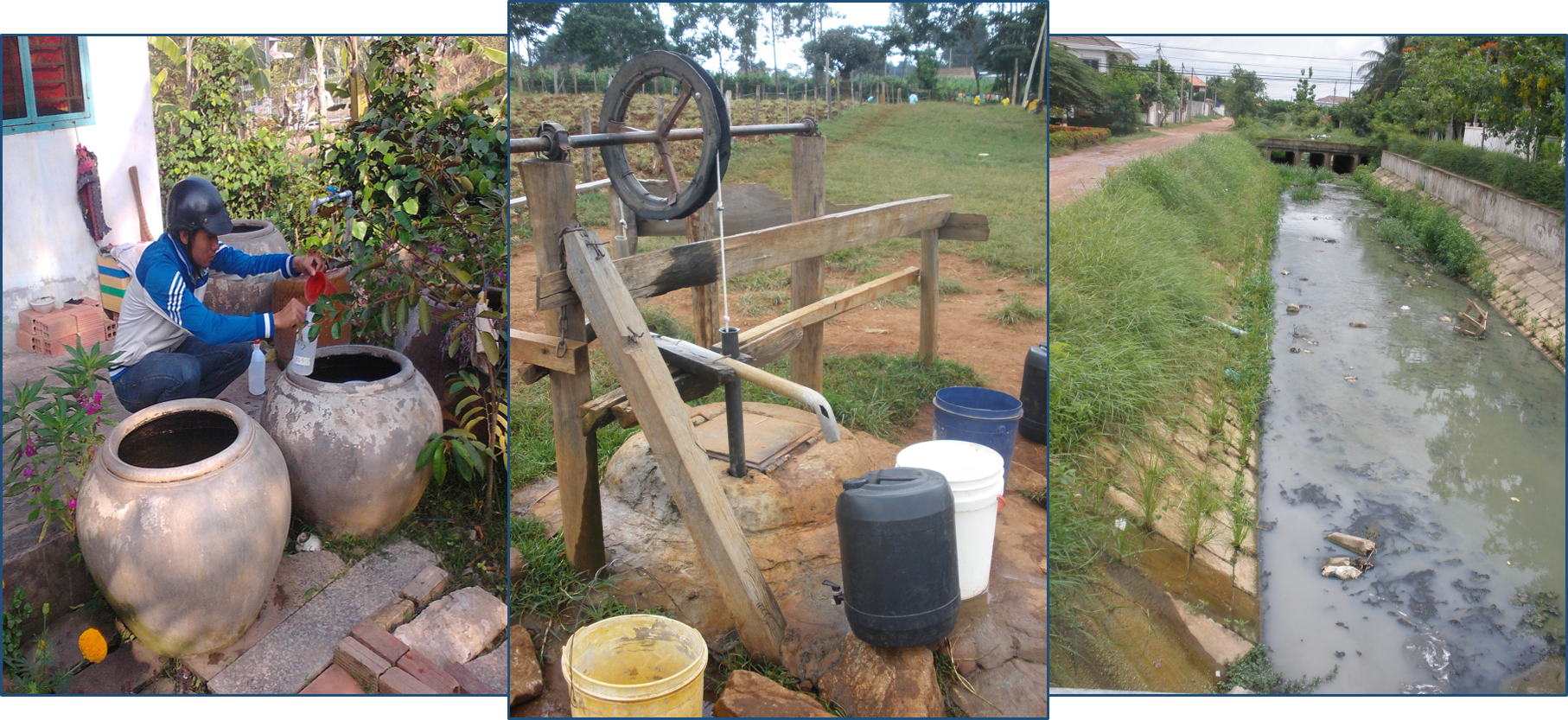Our research group seeks greater understanding around the transdisciplinary nature of water resources, particularly within the water, energy, and food security community. Throughout local, regional, and international pursuits, complex decision-making takes place between competing interests for water resources. This work strikes a balance between fundamental advancements and practical outcomes.
 Current Projects:
Current Projects:
- NEW! CAREER: Ethical implications of connected critical infrastructure in the food-energy-water nexus: 2020-2025. Funded by the National Science Foundation, the objective of this research is to provide explicit consideration of critical infrastructure and stakeholder values in quantification efforts to further understand FEW environmental sustainability. Further details located here. Total Funding, $509,880, Funds obligated to date $424,217 (PI, Primary student- Luis Delgado and Selena Hinojos).
- The Global Adaptation Mapping Initiative. Ongoing. “The Global Adaptation Mapping Initiative (GAMI) is a collective global effort to systematically gather and synthesize literature on climate change adaptation. GAMI is in the process of reviewing thousands of peer-reviewed articles in order to develop the first systematic global assessment of empirical evidence on adaptation progress. This initiative was developed to provide synthesis results to inform the ongoing Intergovernmental Panel on Climate Change (IPCC) 6th Assessment Report (AR6), seeking to answer the question: Are we adapting?”. (Primary Student – Sarah Torhan)
- Thriving Agricultural Systems in Urban Landscapes: 2019-2024. Funded by the United States Department of Agriculture, this project seeks to create economically thriving and environmentally beneficial agricultural systems in urbanized landscapes. This large collaborative project will integrate multiple disciplines across five years of funding. The FEWsLab will be investigating embedded nitrogen and phosphorous accounting into and out of the Chesapeake Bay Watershed. Total Funding: $8,975,094, FEWsLab portion, approximately $400,000. (Co-PI; Primary student- Paniz Mohammadpour).
- Landscape-U, Impactful partnerships among graduate students and managers for regenerative landscape design: 9/2018 – 08/2023. This National Science Foundation funded Research Traineeship (NRT) Program will implement bold, new, and potentially transformative models for STEM graduate education training. Our project focuses on research relating to societal issues around food, energy and water in the Chesapeake Bay watershed and globally. More information can be found here. Total funding: $3,000,000 (Co-PI; Participating students: Paniz Mohammadpour and Lauren Dennis)
- Ethics, Security, and Critical Network Project: Ongoing. Funded by the Rock Ethics Institute this project will pursue normative inquiries into ethical questions that seek to identify and explore social and political implications of risk and what it means for our understanding of security. (PI; in collaboration with Dr. Sarah Rajtmajer)
- Ethical considerations of university involvement in international development: Ongoing. This work strives to deepen our collective knowledge and provide an analysis of university-community engagement within the often-siloed literature on ethics and international development to provide suggestions on strengthening mutually beneficial international partnerships in a variety of fields and applications. Internally supported funding. (PI; primary student: seeking student)
- Health impacts of roadway dust and groundwater following treatment with oil and gas fluids: 07/2018 – 06/2020. The Penn State Clinical and Translational Science Institute supports this grant to identify potential human health impacts from the application of oil and gas waste fluids as dust suppressants on unpaved roads in Pennsylvania. (Co-PI)
Previously Funded Projects
- Maritime Security and the FEWs nexus: January 2019- December 2019. Funded by the Center for Security Research and Education this work included a multiscale exploratory inquiry into underlying threats and strategies for resilience of food, energy, and water resources through analyzing supply chains and shipping within and beyond the United States. (PI; Faculty Fellowship; primary student: Paniz Mohammadpour)
- Developing next generation solutions to mitigate the grand challenge of nonpoint source pollution: 08/2018 – 07/2019. In collaboration with Monash Univeristy, this project provided seed funding to brainstorm new and innovative solutions for nonpoint source pollution through synthesizing views through a systematic approach to the prioritization, placement, and predictions of urban stormwater control measures and engaging diverse stakeholders in ideation activities at planned workshops. (Co-PI)
- What would the Susquehanna River Basin (SRB) look like in a European Union (EU) Water Framework Directive? 4/2018 – 8/2019. This study, supported by the Institute for Energy and Environment, included a collaborative cohort of US and EU scientists working to evaluate the impact of US versus EU policies on water quality in agricultural watersheds. (Co-PI)
- Using Footprint methods to manage the linkages among water, food, and energy to secure a sustainable future: Ongoing. This work strives to answer questions such as How do we quantify water, food, and energy production and consumption simultaneously and across landscapes? How do the properties and connections of socioeconomic-environmental-infrastructural (SEI) networks influence the flow of WFEs resources? What are critical feedback loops that emerge from SEI networks? Internally supported funding. (PI; primary student: Tasnuva Mahjabin)

Research interests in the Grady Lab include:
- Decision-making and network analyses
- Food Water Energy Nexus
- Monitoring and Evaluation in International Development
- Transdisciplinary Global Environmental Challenges
- Costs and benefits of international environmental treaties
- Scientific integrity in policy decision-making
- Environmental justice issues